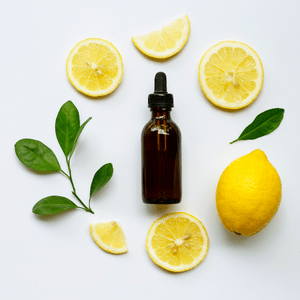The title has caught your attention. You may be wondering why you should consider to eat holistically. Ladies and gentlemen, the new year is right around the corner, and many of you have begun to think about your New Year resolution.
New year’s new me is about to take effect in roughly three weeks.
Changing your eating through fads and techniques is on the radar for some of you. What I mean is dieting. The new year is when many people try out diets, and new diets are born. There is nothing wrong with diets per se. However, diets tend to have an end date. Many are not healthy for long-term use. In fact, most diets on the market are very unhealthy.
Instead of considering a trendy diet, why not completely overhaul your eating habits by eating holistically?
This article breaks down the meaning of holistic eating and how it can help you.
What is Holistic Eating?
First, let’s take a look at what holistic eating is. It can be confusing and overwhelming for many just by looking at the term. According to the Merriam- Webster Dictionary, holistic is the belief that the parts of something are interconnected and should be referenced as a whole.
Now, let’s apply this concept to eating. Holistic eating is when we eat based on our entire body’s needs. This means considering how the food consumed affects our bodies and our mental, spiritual, social, and emotional well-being.

Example Scenarios That Stress the Importance of Holistic Eating
Let’s go through some examples to paint a clearer picture. We will go through some examples of eating habits that are not good for you and how they can affect you holistically.
Lactose Intolerance
You are lactose intolerant, yet you still eat dairy products.
[This one is a brutal example for me because I am lactose intolerant, and I know our struggle. This example is from experience; if this example resonated with you, something has to change.]The action of eating lactose can affect you on a mental, emotional, and physical level. Eating lactose when your body cannot break it down causes physical discomfort. You may even feel guilty or ashamed that you put yourself into the situation due to being unable to say no to your impulses which can impact you on an emotional and mental level.
How many times have you eaten something you knew you should not have? Did you feel guilty? Although you may not feel guilty for long, why keep putting yourself through that?
Instead of eating lactose-containing foods, try looking at alternatives to avoid going through the side effects of eating lactose. Choosing an alternative option is practicing holistic eating.
High Sodium
Another example is you receive labs from your doctor that you have high sodium. Your high sodium is because you eat many frozen meals due to hectic work and home life balance.
[High sodium is crucial to pay attention to. Consistently having high sodium content in your body can lead to many conditions, such as high blood pressure, high cholesterol, etc. These conditions can lead to heart attacks, heart failure, stroke, and other diseases if not properly managed.]Eating frozen meals every day is a product of your lifestyle. Being unable to practice a healthy balance of your work and home life is the root cause of this unhealthy habit. It has manifested through the symptom of having high cholesterol.
Not only is your physical well-being being threatened, but there is a high possibility that your mental, emotional, spiritual, and social well-being are not well managed.

Tips to Begin Transitioning Into Holistic Eating
While the example above is a little more in-depth, it is vital to understand that every habit that we form is a product of cause and effect. The obvious solution to this example is to decrease the amount of sodium or salt intake. There are a few steps to be taken to improve the situation.
- Make changes to your work and home life balance. Create clear boundaries with yourself. Give yourself time to pamper yourself and have fun. Work will always be there.
- Learn how to cook and prepare meals. Cooking is all about how you make it. You can spend a short time in the kitchen preparing a healthy meal. Either take some classes. Try out meal prepping for the week.
- Seek out a nutritionist. These people work magic! They consider your wants and needs to help you plan your meals. While also teaching you what to do when you become overwhelmed. Make sure the nutritionist you choose listens to you. If they don’t, find a new one. Be bold. Ditch a professional that does not consider your input.
- Practice telling yourself you are worth it. We live only once. Please make the most out of it! Treat yourself with kindness.
All in all, to eat holistically means to make conscious decisions while choosing when or what to eat. Take into consideration how you as a whole will impact by the choices you make.

Make Holistic Eating Easier for Yourself
Holistic eating does not necessarily mean eating completely healthy. I am not telling you to go out and become a health nut! While that is not bad, staying true to yourself and your values is essential.
It is all about moderation and controlling your impulses.
Everyone’s journey is a little different. Mine won’t look like yours, and yours won’t look like your favorite social media star. That is okay. Find what works for you. What makes you excited every day to live your life seeing the best version of yourself?
Have you ever gone out with friends and overindulged? In the process, you feel overly full and tired. Instead of focusing on the atmosphere and everyone around you, you focus on how awful you feel. That is a horrible thing to go through.
Throw away feeling guilty about how or what you eat. Make a conscious decision to consider yourself every single step of the way. That is how you make the change to eating holistically easier for yourself. Give yourself purpose for the cause.
Try considering setting intentions to eat holistically. Every day you wake up, start with your intentions. Need help figuring out where to start? Check out my article on setting intentions here.
Be proud of the person you see in the mirror. Who do you see?
You do not need to seek a diet. Try to eat holistically. Make a long-term commitment to yourself. To be consistent, you need to change your mindset. Often, diets are short-term fixes, and many return to their old habits once they end. So, focus on creating new practices instead of diet trends.



